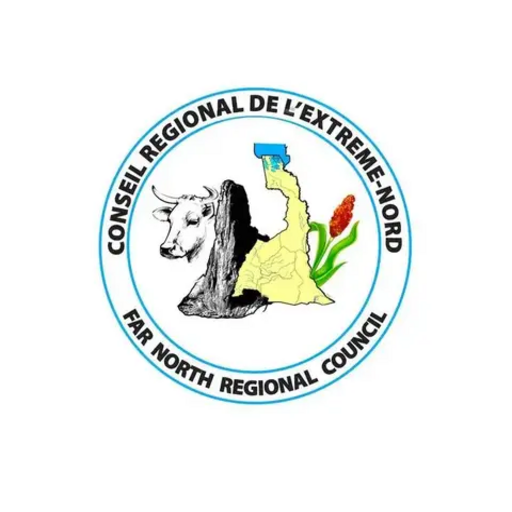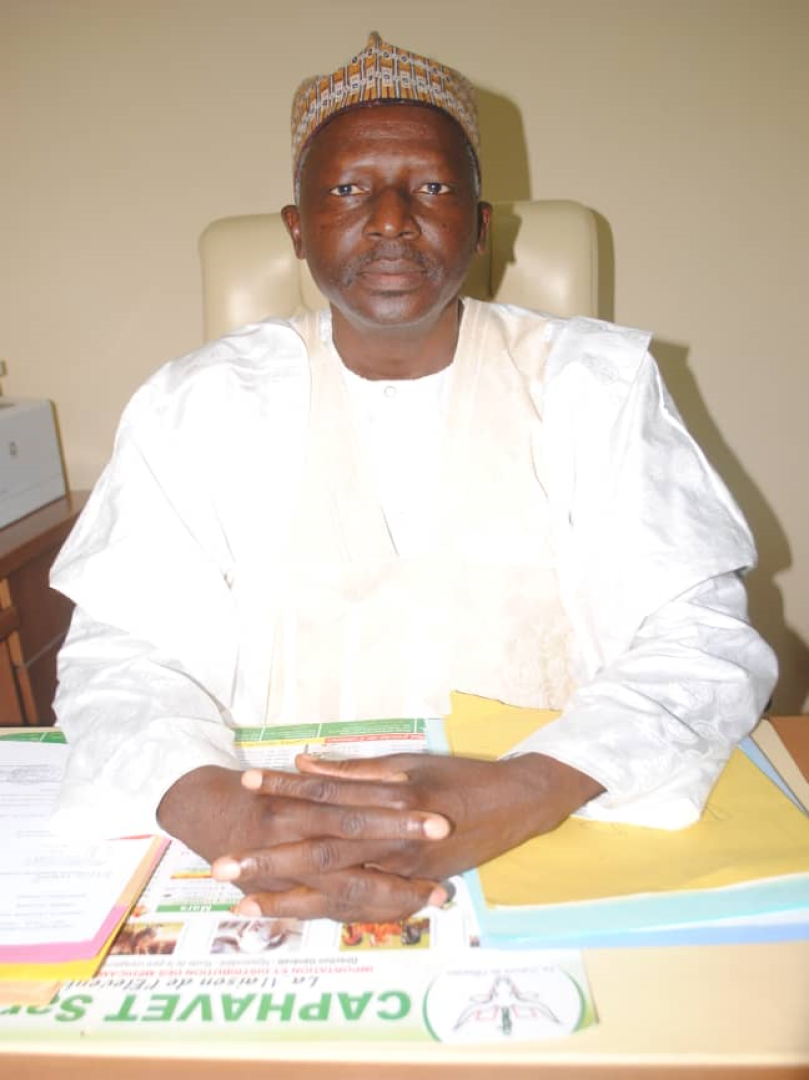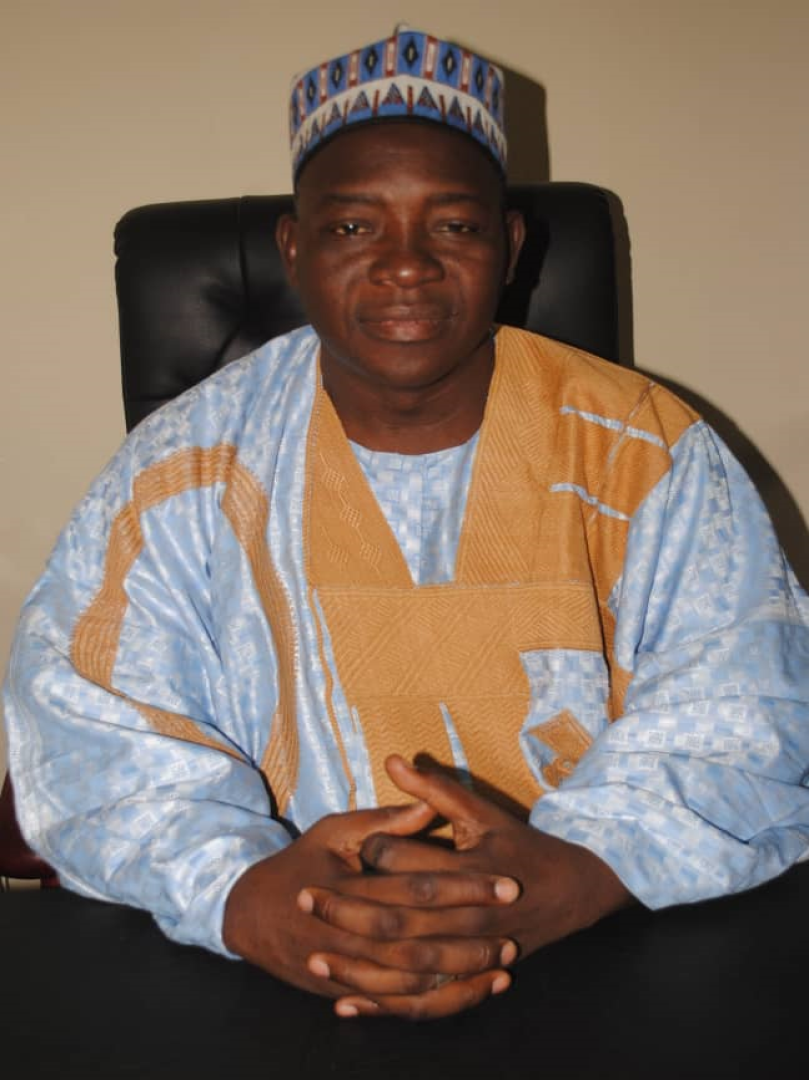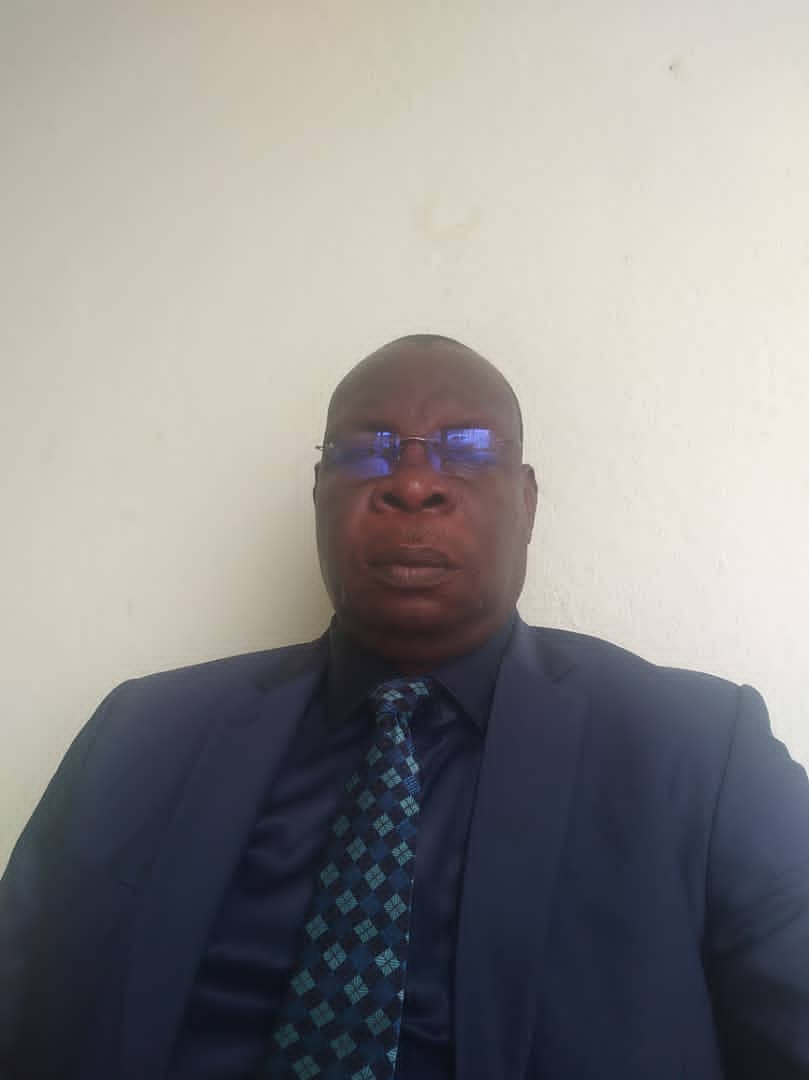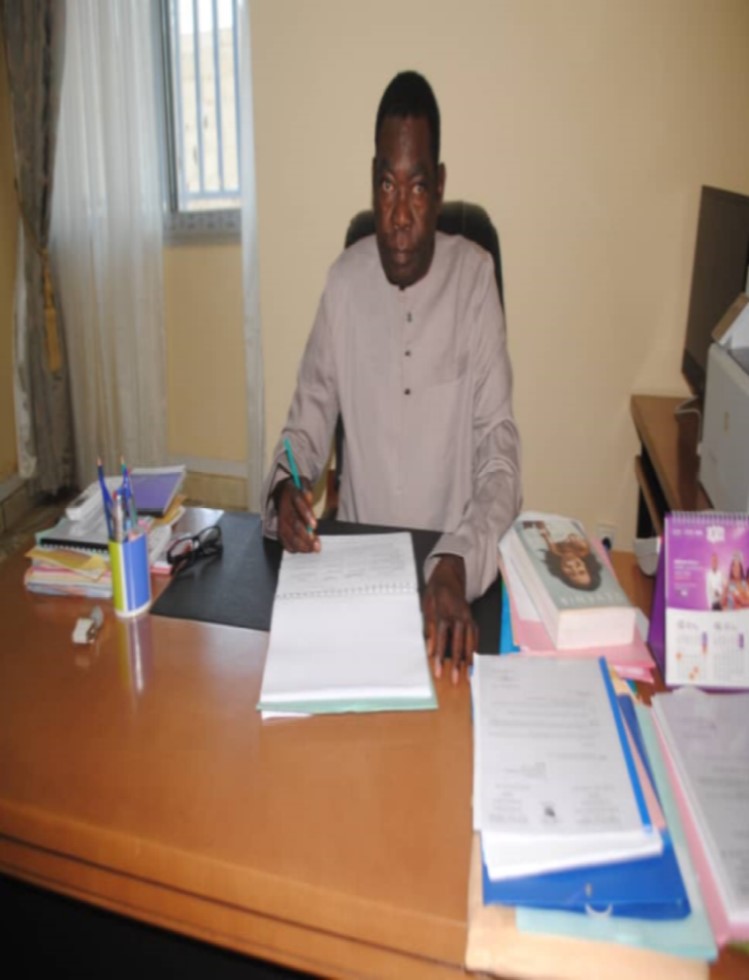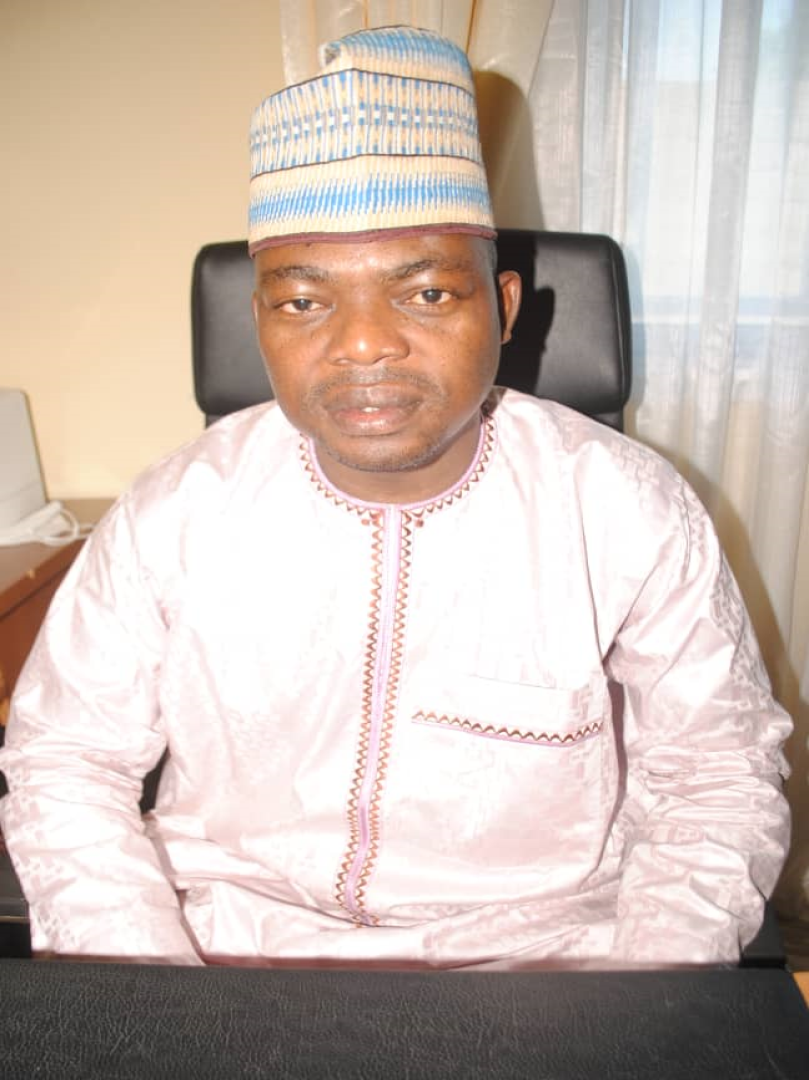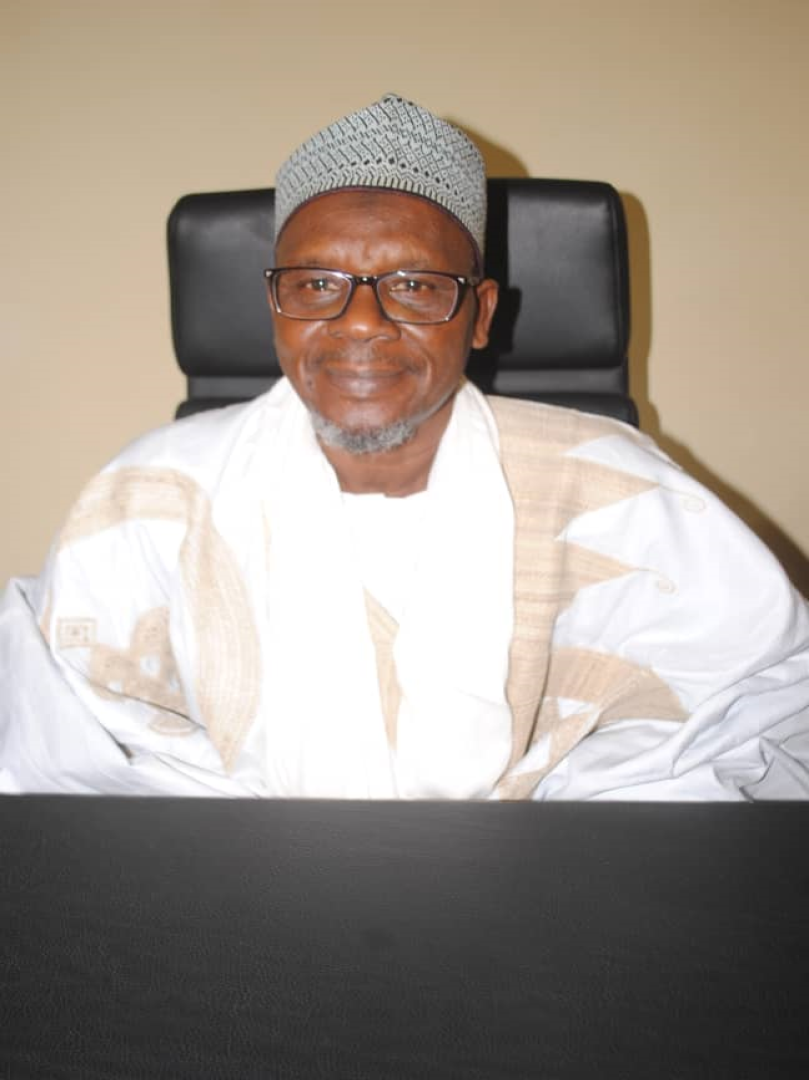STRATEGIC VISION
Vested with a general duty to ensure economic and social progress, the strategic vision of the Far-North Region for the period 2021-2026 is: “to make the Far-North Region a large, enterprising, prosperous and inclusive community based on its socio-cultural values”
THE PRESIDENT
The President of the Regional Council is the executive of the Region. The very first President elected during the session as of right of 22 December 2020 is Mr. Kalbassou Daniel. A banker by training, the President of the Far-North Regional Council has long experience in the management of organizations and is well versed in the mechanisms of financing development projects. According to Article 312 of Law N°2019/024 of December 24, 2019, the President exercises some powers as an executive organ.
As such, he shall:
- be the interlocutor of the representative of the State;
- represent the Region in civil and before the law courts;
- prepare and implement the deliberations of the Regional Council;
- authorize the revenue and expenditure of the Region;
- manage the Region’s property and monitor such management, particularly with regard to movement on such property, subject to the duties devolving on the representative of the State and mayors.
THE REGIONAL BUREAU
In addition to the President, six other members elected during the session as of right make up the Regional bureau. They are:
THE REGIONAL COUNCIL
The Regional Council is the deliberative organ of the region. It is composed of ninety (90) Regional Councillors elected for a five (5) year renewable term in a proportion of 70 divisional representatives and twenty (20) representatives of traditional rulers.
According to Article 277 of Law No. 2019/024 of December 24, 2019 on the General Code of Territorial Communities, the Regional Council shall:
- settle regional matters by deliberation;
- express an opinion whenever it is required by the laws and regulations or at the request of the representative of the State;
- express wishes through deliberations on all matters of regional interest;
- be informed of the progress of works and activities financed by the Region;
- be mandatorily consulted for the implementation in the territory of the Region of any project of development or equipment project by the State, the councils or any public, semi-public or private organization.
AREAS OF INTERVENTION
Areas of intervention of the Region correspond to powers devolved upon Regions by the State. The following powers are devolved upon regions:
At the economic level
- promoting small and medium-sized enterprises;
- organizing fairs and exhibitions;
- promoting handicrafts;
- promoting agricultural, pastoral and fishery activities;
- encouraging the creation of regional groupings for economic operators
- promotion of tourism;
At environmental and natural resources management level
- managing, protecting and maintaining protected areas and natural sites under the jurisdiction of the Region;
- preserving and implement other local measures to protect nature;
- managing regional interest water;
- creating woodlands, forests and protected areas of regional interest following to a plan duly approved by the representative of the State;
- creating firewalls and early firing as part of the fight against bush fires;
- managing regional natural parks following a plan submitted for approval to the representative of the State;
- formulating, implementing and monitoring regional environmental action plans or schemes;
- formulating and implementing specific risk prevention and emergency response regional plan
In the field of spatial planning, regional development, public works, town planning and housing
- formulating and implementing regional development plans;
- signing performance contracts with the State for the achievement of development objectives;
- participating in the organization and management of interurban public transport;
- coordinating development actions,
- formulating regional territorial development guidelines, in accordance with the national plan;
- participating in the elaboration of urban planning documents and master plans of local authorities;
- rehabilitating and maintaining divisional and regional roads;
- supporting the actions of councils in town planning and housing matters.
In the health and social development field
- creating in accordance with the health map, equipping, managing and maintaining health facilities within the region;
- participating in the maintaining and managing social advancement and/or rehabilitation centres;
- recruiting and managing nursing and paramedical staff of regional and district hospitals
- supporting health facilities and social institutions;
- implementing preventive and hygienic measures
- organizing and managing assistance to the needy;
- participating in the development of the regional portion of the health map
- participating in organizing and managing drug supply, essential reagents and appliances, in accordance with the national health policy.
In the field of education and literacy
- participating in drawing up and implementing the regional portion of the national school map;
- creating, equipping, managing and maintaining government secondary and high schools as well as colleges in the region;
- recruiting and managing teaching and support staff of such institutions;
- acquiring school supplies and materials;
- distributing and awarding scholarships and school grants;
- participating in the management and administration of government secondary and high schools as well as colleges through dialogue and consultation platforms;
- supporting the actions work of councils in the area of primary and nursery education;
- formulating and implementing regional plans for to eliminate illiteracy;
- preparing annual summary reports on the execution of literacy campaign plans
- recruiting personnel in charge of literacy campaign, training of trainers;
- designing and producing teaching aids, drawing up of the literacy map;
- constructing educational infrastructure and facilities, monitoring and evaluating illiteracy elimination plans.
In terms of vocational training
- carrying out a comprehensive census of the region’s trades and preparing a directory of existing vocational training courses with an indication of the required skills and training profiles;
- participating in drawing up the regional portion of the school map relating to technical education and vocational training;
- developing a forward-looking training plan;
- ensuring the upkeep and maintaining schools, training centres and institutes in the region;
- recruiting and managing support staff;
- participating in the procurement of teaching aids, particularly supplies and work materials;
- participating in the management and administration of state training centres through dialogue and consultation platforms;
- formulating a regional plan for the vocational integration of youth;
- assisting in the drawing up of school-enterprises partnership contracts;
In the field of youth, sports and leisure
- issuing authorizations to open educational centres duly approved by the representative of the State;
- assisting regional sports associations;
- constructing, administering and managing sports and socio-educational infrastructure with a regional status;
- organizing, coordinating and developing socio-educational activities;
- promoting and managing physical and sports activities at the regional level;
- creating and operating leisure parks of regional interest;
- organizing recreational socio-cultural events of regional interest;
In the field of culture and promotion of national languages
- promoting and developing cultural activities;
- contributing to the surveillance and monitoring of conservation status of historical sites and monuments as well as discovery of prehistoric vestiges;
- organizing cultural days, traditional cultural events and literary and artistic contests;
- creating and managing bands, traditional song groups, ballets and drama groups of regional interest;
- creating and managing socio-cultural centres and public reading libraries of regional interest;
- collecting and translating works of oral tradition such as tales, myths and legends, with a view to facilitating their publication;
- assisting cultural associations;
- encouraging functional command of national languages and producing the regional linguistic map;
- participating in the promotion of publishing in national languages;
- promoting print and broadcast media in national languages;
- building infrastructure and facilities.
REGIONAL COUNCILLORS
The Far-North Regional Council has ninety (90) Regional Councillors coming from the forty-seven (47) subdivisions of the region as administrative unit. They are distributed by division and category as follows:
MAYO-DANAY DIVISION
CATEGORY OF DIVISIONAL REPRESENTATIVES
- Mr Kalbassou Daniel
- Mr Adoum Garoua
- Mr Fague Nicolas
- Mr Moussa Guinitna David
- Mr Kalvoksou Rigobert
- Mr Rodo Marcel
- Mr Hamadou Evele
- Mr Djedo Djonwe Alain
- Mr Kamerun Kosga Koskreo
- Mr Boubakary Issa
- Ms Lamana
- Mr Sierra leon
- Ms Kapkansou Agnes
- Ms Banguidara Esther
- Ms Lastouang Marie
CATEGORY OF TRADITIONAL RULERS
- HM Wourlina Kampete
- HM Adamou Mati
- HM Nagassou Simon
DIAMARE DIVISION
CATEGORY OF DIVISIONNAL REPRESENTATIVES
- Mr Boubakary Abdoulaye
- Mr Asfom Paul
- Mr Aboubakari Oumarou
- Mr Bouba Djoulde
- Mr M’hamed Amin
- Mr Ismailou Aboubakar
- Mr Souleymanou Halilou
- Mrs Habiba Epse Moussa
- Ms Sadia
- Mr Amadou Hamidou
- Mr Abdoulaye Yaya
- Mr Haman Djalo
- Ms Nafissatou
- Mrs Aissatou Wakili Sandare Epse Hamadou
CATEGORY OF TRADITIONAL RULERS
- HM Bakary Yerima Bouba
- HM Godola Avai
- HM Dairou Siddi
- HM Dahirou
LOGONE AND CHARI DIVISION
CATEGORY OF DIVISIONNAL REPRESENTATIVES
- Mr Abani Kokio
- Mr Tom Ahmat
- Mr Youssouf Mahamat
- Ms Bintou Modou
- Mr Mahamat Habibou
- Mr Mahamat Tom
- Mr Heralla Sale
- Ms Hadje Amahani Hissen
- Ms Djene Abouya
- Mr Djibrine Hessana
- Mr Bichara Aboukar
- Mr Brahim Sale
- Mr Service Achimga
- Mr Amidissini Moussa Alphonse
CATEGORY OF TRADITIONAL RULERS
- HM Soungui Ali
- HM Abdoulkadre Mahamat
- HM Mahamat
- HM Alka Djidda
MAYO-KANI DIVISION
CATEGORY OF DIVISIONAL REPRESENTATIVES
- Mr Haman Kaïgama Gilbert
- Ms Maye Rosalie Nyazaucke
- Mrs Baïda Marthe Épouse Maïna
- Mr Mansoura Ndjidda
- Mr Djele Sali
- Mr Yelle Loumlia
- Mr Fatouing Houlibele
- Mr Mbody Danrewe Marius Jean Pierre
- Mr Bachirou Halilou
- Mrs Djouma Wanlibele
CATEGORY OF TRADITIONAL RULERS
- HM Oumarou Maïgari
- HM Bassoro Divawouï
- HM Madi Welebele Welga Dourga
MAYO-SAVA DIVISION
CATEGORY OF DIVISIONNAL REPRESENTATIVES
- Mr Baba Malloum Ousman
- Mr Waïve Fefe
- Ms Satrebaï Suzanne
- Mrs Adah Marie épouse Hamidou
- Mr Gablom Jean Robert
- CATEGORY OF TRADITIONAL RULERS
- HM Mohamad
- HM Hoche
- HM Seni
MAYO-TSANAGA DIVISION
CATEGORY OF DIVISIONNAL REPRESENTATIVES
- Mr Gabai Flem Ngari
- Mr Wandala Tite
- Mr Aboubakar Alim Moussa
- Mr Likabi Nathaniel
- Mr Guidzavaï Vakanawa
- Mr Saïdou Todou
- Ms Nafissatou Hamadou
- Mr Oumate David Aggee
- Mr Kodji Wandala
- Mr Zra Issiyakou
- Mr Boukar Tchakoule
- Mr Oumarou Tchideme
- CATEGORY OF TRADITIONNAL RULERS
- HM Djaligue Zogoye
- HM Yacouba Mohamadou Mourtala
- HM Sali Bouba
COMMITTEES
The Regional Council has four (4) commissions, each chaired by a committee member :
- Committee on Administrative and Legal Affairs, and Standing Orders;
- Committee on Education, Health, Population, Social and Cultural Affairs, Youth and Sports;
- Committee on Finance, Infrastructure, Planning and Economic Development;
- Committee on Environment, Regional Development, State Property, Town Planning and Housing;
